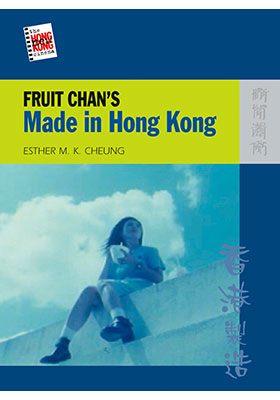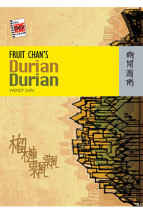Fruit Chan’s Made in Hong Kong
(陳果的《香港製造》)
ISBN : 978-962-209-977-7
July 2009
196 pages, 5.5″ x 7.5″, 25 b&w illus.
- HK$195.00
Ebooks
Also Available on
This tragic coming-of-age story follows three disillusioned local youths struggling to navigate Hong Kong public housing projects and late adolescence amid violent crime, gang pressure, and broken homes. Their personal friendships and family lives intersect with a mysterious fourth protagonist, a girl whose suicide haunts the other three throughout the film as they move toward their own premature ends. This 1997 film was the first in Chan’s acclaimed “handover trilogy.” Shot on a very low budget, utilizing excess film stock, amateur actors, and a crew of five, it marked the beginning of Chan’s career as an independent film director.
“Esther Cheung’s monograph is a model of its kind: well researched, provocative, illuminating. While giving an in-depth analysis of one film, it also demonstrates what is new and important about the New Hong Kong Cinema.” —Ackbar Abbas, University of California, Irvine
“This well-researched volume offers some unique insights into the work of Fruit Chan, certainly one of the most original and ‘native’ Hong Kong film directors to have emerged in the last decade. A welcome addition to this popular series on Hong Kong film.” —Leo Lee, The Chinese University of Hong Kong
“In this passionately thoughtful study, Esther M. K. Cheung brings global concerns and local experiences together to enhance our capacity to grasp the vital relationship between them. At once an illuminating account of the work of Fruit Chan and a loving affirmation of the grassroots life of her city of Hong Kong, Cheung’s book is also a major contribution to the great themes of modern film criticism: independence, realism, memory and the urbane. It is also a great read; the poetic urgency of Cheung’s vision of why Made in Hong Kong matters so much is felt on every page.” —Meaghan Morris, Lingnan University, Hong Kong





